In congregations across the South Pacific a new education initiative is being introduced to families in The Church of Jesus Christ of Latter-day Saints.
Through a video distributed recently to the approximately 1,500 Latter-day Saint congregations across Australia, New Zealand, Papua New Guinea, and the Pacific Islands, the three senior leaders of the Church in the Pacific introduced a family education initiative called, Success in Schools Begins at Home.
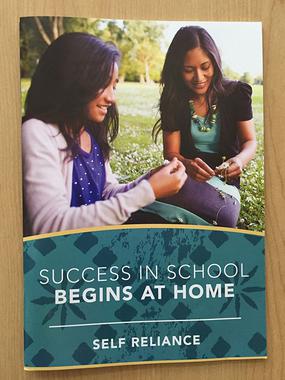
The course is designed to increase self-reliance in the members of the Church through lifelong educational aspiration, effort and achievement.
In the video Elder S. Gifford Nielsen quotes from a Latter-day Saint instructional handbook when he says, “Self-reliance [is] the ability, commitment, and effort to provide the spiritual and temporal necessities of life for self and family.’”
He continued, “During the last few months of 2015, members of the Area Presidency and Area Seventies gathered with leaders to discuss the important role of education in becoming self-reliant. We were challenged to ‘MASSIVE action,’ in raising the level of education among Church members.
“We talked about the responsibilities of individuals, parents, and families in gaining an education. Parents have a divinely appointed responsibility to support and guide their children as they pursue education and training."
The video quotes Elder Kim B. Clark, Church Commissioner of Education: “Whatever level of spirituality we now enjoy in our lives; . . . whatever level of professional skill or ability we may have obtained, it will not be sufficient for the work that lies ahead.”
Elder Craig A. Cardon said, “As an area presidency, we desire that every young man and woman in the Pacific Area successfully complete primary and secondary school with a meaningful qualification. And every young adult in the Pacific Area pursue and complete vocational or tertiary school.
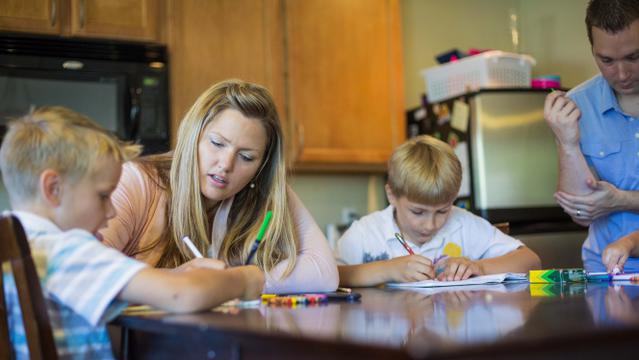
“People gather together to learn in many places. We gather in schools, in our chapels, and in our workplaces. Today we would like to emphasise that the most important educational gathering place is in the home.”
Elder Nielsen remarked: “Parents are a child’s most important teachers. It is in the home where attitudes towards education are shaped. It is in the home where children are taught to work hard and to do their best. To support parents in making their homes a place of learning, we are excited to announce the release of a manual entitled, Success in School Begins at Home."
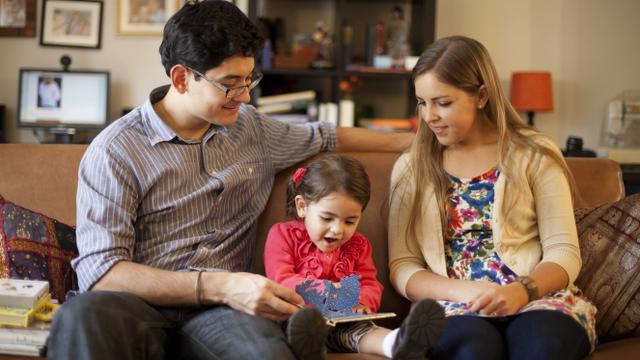
Pacific Area Self-reliance Manager, Paul Reid, said, "The intent is not to say parents should home-school, or feel the need to provide classes of instruction for their children. The purpose of the manual is to be a guide for groups of parents to discuss how to help their children be as successful as possible in their schooling."
The Success in School Begins at Home manual contains 12 lessons, with topics such as: get all the education you can; use family routines; teach children to plan, organise, and prioritise; be an expert on your child’s progress in school; establish good homework habits; help your child prepare for tests; and improve reading and writing skills in English.
The study guide is brief, easy-to-use, and contains specific action items to help parents follow-through after each lesson.
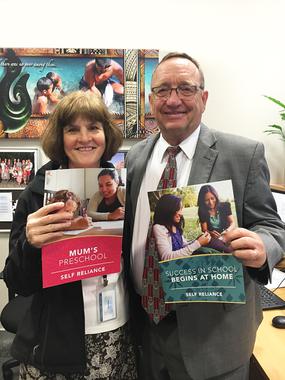
A volunteer Latter-day Saint senior missionary couple, Reed and Nada Spencer, spent the past two years researching, compiling, and publishing the educational manual. From the Pleasant View area near Ogden, Utah in the USA, the Spencers have many years of experience that suited them for this important assignment.
Reed Spencer began his professional career as a primary teacher. He soon moved into administrative positions, ending his career at the Utah State Office of Education directing literacy instruction for the 600,000 public school students there. In addition, he spent twenty years teaching graduate school, training teachers.
Nada Spencer spent those years raising five children, taking an active part in their education and schools, and teaching and leading church youth groups. Since the home is the most important element for learning success, Mrs Spencer gained valuable experience as she coached their children to become successful students.
With Mr Spencer's retirement and their children out on their own, the couple volunteered to serve a mission for the Church and received an assignment to Samoa. Arriving in 2012, they spent 18 months as International Teacher Education Program (ITEP) missionaries, teaching teacher certification courses through BYU Hawaii.
At home just six months after their Samoa mission ended, they received a request to serve another mission, this time in Auckland New Zealand at the Church’s Pacific Area Office. Their assignment was to raise the level of education in the families of the Church throughout the South Pacific.
It was a big challenge, they say. They were the first couple called to be education coordinators. There was no manual for them to follow as they began to tackle the job.
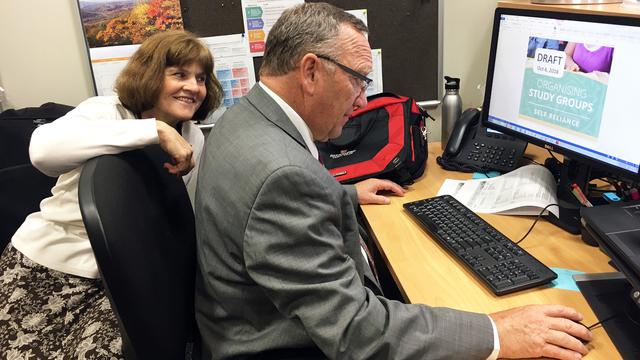
Reed said, “We were, of course, quite prayerful. When we got here, we knew two things: one was that we didn’t know what to do. We were sure of that. And the other was, we were pretty sure the Lord did know what to do.
“Over the next little while, we learned that we needed to help parents understand that, by meeting in groups to discuss education principles, they can make a difference in the level of education among the people of their local congregations . . . that they can help 'bear one another’s burdens'.”
They also learned that the education program needs to work in harmony with the Church’s self-reliance program already in place, so there wouldn’t be “one more program” for leaders and members to organise.
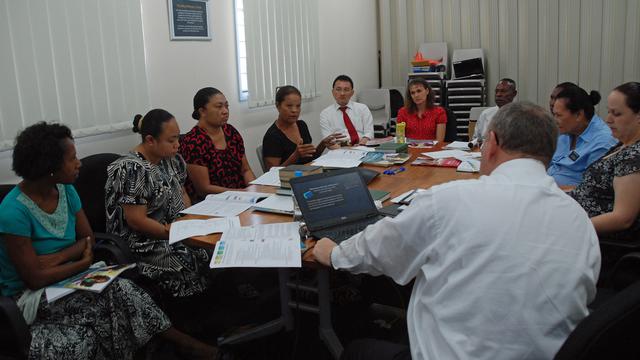
“Our experience in [Samoa] helped us understand some of the needs,” Mrs Spencer says. Because we’d lived with the people, we saw that many young children are coming to school totally unprepared. We saw that English is a struggle because many of the kids didn’t read or write in English.”
The Spencers developed some literacy initiatives in the Church schools in Samoa, providing them additional experience in preparation for producing the Success in School manual.
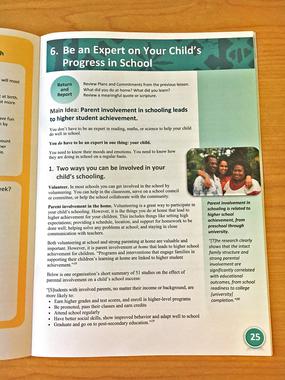
“We want parents and families to see that they do have the capability,” Mr Spencer said. For example, one of the key lessons in this package is the research that clearly shows that you don’t have to be an expert in math, science, or anything else to help your children achieve in math, science, and everything else. In fact, you don’t have to know math, you don’t have to know science.
“What the evidence shows is that you do have to be an expert—but you have to be an expert in your child. You have to be an expert in who your kid is, and how they’re doing, and whether they’re engaged in the work; whether they’re getting their homework done; whether they’re doing ok at school. The evidence is real strong that parents just need to know that."
He added: “And they have to value school, and make sure your kid knows you value school, and you’ve got to stay by that kid’s side and monitor what’s happening. If you do that, it doesn’t matter what your level of education is; your child will succeed at a higher level. It doesn’t solve every problem and pass every test, but the evidence is rock solid. The home is the most important ‘educational gathering place’.”
Mrs Spencer said that, “We’ve got to reach the mothers, to get them involved, to get them confident that they can help their children succeed in school. We’re trying to teach them that one well educated person will change a family for generations.”
In addition to compiling the Success in School Begins at Home manual, the Spencers produced four other guides relating to education: Leadership Guide, Mum’s Preschool, Study Buddy Group, and English Study Group.
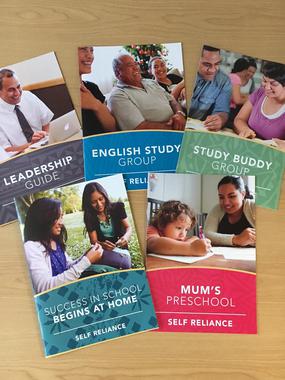
The leadership guide quotes senior Church leader Russell M. Nelson who said, “Gaining an education is not just a privilege; it is a religious responsibility.” The guide instructs Church leaders how to organise their members and help them raise their level of education.
The mum’s preschool guide provides a pattern and lessons for mums to teach children the important skills needed before entering primary school.
“Participating in a preschool organised and taught by mothers will help children learn to get along with others, understand how a classroom works, take direction from other adults, and learn the basic skills necessary for success in reading and math,” the booklet suggests.
“The first five years of a child’s life is a critical time of growth and learning. Unfortunately, a five-year-old child who has not learned certain skills can already be as much as two or three years behind other children when they start school! Our goal is for every child entering the first year of school to be prepared and ready.”

The study buddy guide explains how small groups can help one another learn and gives examples of lessons and skills.
“The first purpose of this group,” the guide explains, “is to organise ward members to help each other be successful in school.
The second purpose is to help anyone improve their skills in basic reading, writing, and math. Most people need extra teaching and practice on certain skills, and schools do not usually have the funding to provide that extra help. Private tutoring is very expensive, and not always effective. As members of the Church, we can and should help each other—not just go to school, but be successful in school!”
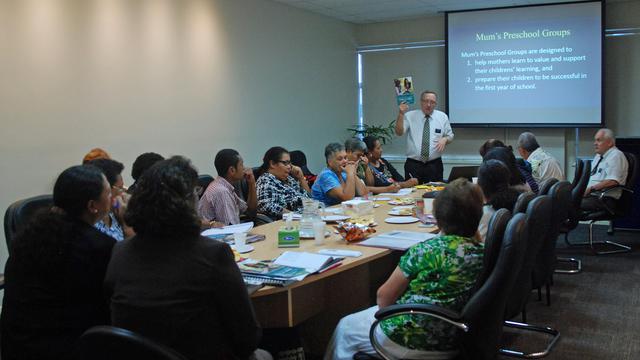
The English study group manual states, “Why is learning the English language important? More and more, English is the language of business, industry and employment, the language of tertiary education, and the language of technology—worldwide.”
The guide illustrates how becoming more proficient in English will help people provide for themselves and their families, serve and assist others, and realize their full potential.
“Becoming proficient in English will help children and youth be more successful in school. It will help [people] be more effective parents (for example, helping children with schoolwork or employment), contribute more to their community and be more effective advocates for their nation and culture."
Nada Spencer asks, “How can we expect people to go out and start a business when they can’t read and write? How can we expect our people to go back to school when they didn’t do well in school, and they can’t speak English?”
Many congregations have already organised groups and are working through the lessons and putting the instructions into practice. Richard and Mary Jarvis, self-reliance missionaries, have been actively assisting these groups get organised.
Mr Jarvis said, "I believe this group of Niuean women in the McKenzie Road congregation in Auckland New Zealand are the first class to graduate from Success in School Begins at Home, in the world!"
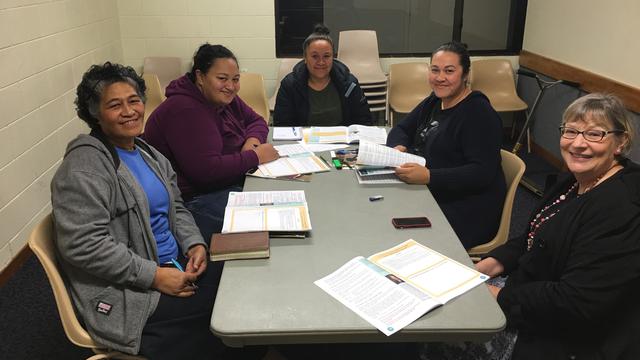
“We see the home as a place that can nurture education—an environment that encourages children to succeed at school and continue to learn," Mr Reid said. "The 12 lessons are not prescriptive. They are a catalyst, providing a forum for parents to get together and talk about the things that are working in their homes, helping each other know what they can do. Parents learn that the role they can play is critical; to be intimately involved in the education of their children can make such a difference.”
“We’re getting remarkable feedback,” Reed Spencer says. "People getting back to school and people changing their families."